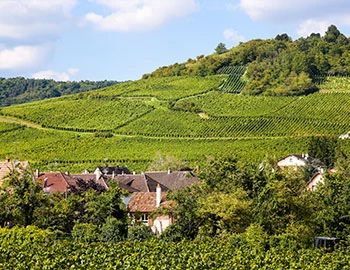
Chablis Montée de Tonnerre 2020
AC 1er cru, Julien Brocard, 750 ml

| Grape variety: | Chardonnay |
| Producer: | Domaine Julien Brocard |
| Origin: | France / Bourgogne / Chablis |
| Other vintages: |
Description
In Burgundy, it's all about the site. And this Premier Cru by the name of Montée de Tonnerre lies directly adjacent to the hill of Grand Crus near the village of Chablis, with its ideal orientation towards the South-West. The Brocards have been working with biodynamic methods for many years, and their wines have long enjoyed great popularity, especially on the terrace of the Baur au Lac. The first nose of this Chablis reveals a smoky and chalky minerality, which continues to unfold on the palate. The aromas fluctuate between Granny Smith and lime, with an added dash of firm acidity and a salty finish. A terrific wine, and not just with seafood! And here's another tip: Don't serve it too chilled if you want to allow its full impact to unfold in your round Burgundy glass.
Attributes
| Origin: | France / Bourgogne / Chablis |
| Grape variety: | Chardonnay |
| Ripening potential: | 2 to 8 years |
| Drinking temperature: | 10 to 12 °C |
| Food Pairing: | Bouillabaisse, Baked egli fillets with tartare sauce, Roast veal with morel sauce, Vitello tonnato |
| Vinification: | soft pressing, biological acid degradation in barrel |
| Harvest: | hand-picking, strict selection |
| Maturation duration: | 12 months |
| Volume: | 13.0 % |
| Note: | Contains sulphites |
Domaine Julien Brocard
The seven vineyards - Chablis "naturally"
Julien Brocard's domaine is located in Préhy, just a few kilometres from the town of Chablis in northern Burgundy. The aim of the domaine is to bring out the true character of the wines without any distortion, and for this purpose the vines have been cultivated biodynamically since 2011.
In 1973 Jean-Marc Brocard planted his first vines in the Chablis winegrowing region. In 1995 Julien Brocard followed in his father's footsteps and took on his first responsibilities in the family business. Together they created ecological niches by planting new fruit trees typical of the region, such as hazelnut, pear and vineyard peach. These promote biodiversity and the balance between animals and plants. In 1997 Julien Brocard discovered the vineyard of La Boissonneuse, where he ventured on his first biodynamic experiments. This vineyard received biodynamic certification as early as 2002. All the other vineyards and plots were also gradually converted to biodynamics.
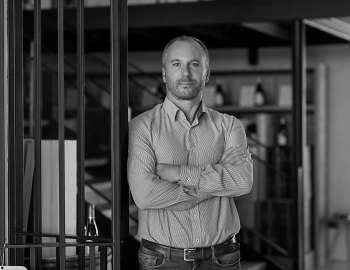
Chardonnay
King or beggar?
Hardly any variety of vine shows such a broad spectrum of quality as the Chardonnay. Its wines range from faceless neutrality to breath-taking class. It is an extremely low-maintenance vine, which explains why it is grown around the world – even in places where it probably should not be. The aromas of the Chardonnay variety are not very pronounced: a bit of green apple, a little hazelnut; in warmer latitudes, also melon and exotic fruits. The wines are often defined by maturing in casks. They develop more or less subtle notes of butter, toasted bread and vanilla. The grapes achieve their highest expression in their region of origin, Burgundy. Its heart beats in the Côte de Beaune: one might think of the plant growth of Meursault or Puligny-Montrachet. With their finesse and complexity, they can survive for decades. Chardonnay also achieves first class in some Blanc-de-Blancs champagnes. It additionally yields great wines in the Burgundian Chablis, and increasingly in Australia and Chile. A simple rule of thumb for pairing with food: When butter and cream are involved, you cannot go wrong with Chardonnay.
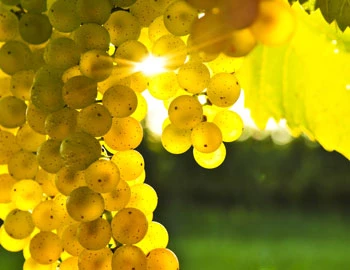
Chablis
Chablis: the pure finesse of Chardonnay
Nowhere is the Chardonnay variety as clearly recognizable as in the Chablis appellation, with its approximately 5,000 hectares of vineyard area. It is the pronounced acidity that lends the wines their dancing finesse and crispness. Sitting at 48 degrees latitude, and with extraordinary limestone-marl soils, the area has long been seen as France's “cool climate” region par excellence. Despite a warming climate, Chablis wines still retain their charmingly cool freshness.
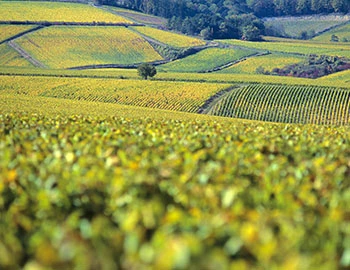
Bourgogne
Burgundy: home of the crus
Burgundy and Bordeaux are France’s most prestigious wine regions. Nonetheless, they are completely distinct in character: while Bordeaux, as the land of the chateaux, enjoys an aristocratic image, Burgundy has retained its rustic agrarian structure. Burgundy stretches for over 200 kilometres, from Dijon in the north to Lyon in the south. In a highly complex jigsaw of the most diverse of terroirs, Chardonnay and Pinot Noir demonstrate the subtle ways in which they embody their sources.
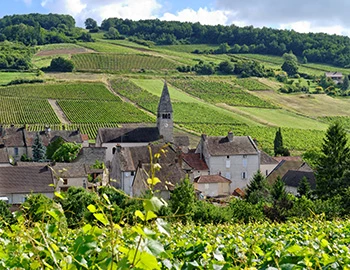
France
France – Philosophy in a bottle
According to French philosophy, wine should be an expression of the soil and climate. They use the word “terroir” to describe this. Terroir makes every wine different, and many especially good. French wine is regarded worldwide as an expression of cultural perfection. The French believe that humans are responsible for the quality of the berries, the vine variety for their character, and nature for the quantity. This philosophy can be expressed succinctly as: “the truth is the vineyard, not the man.”
